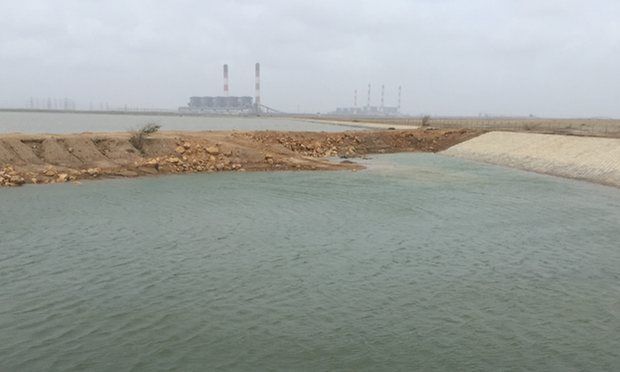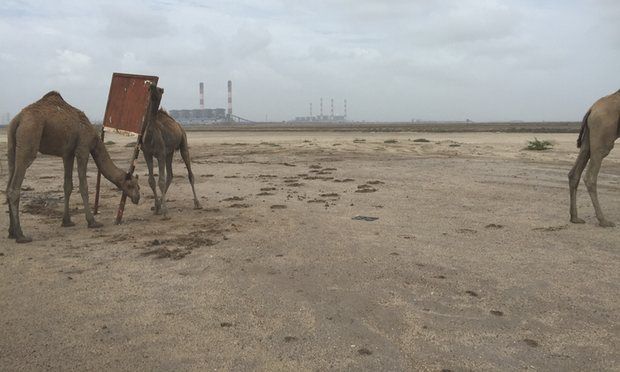A Washington DC judge has ruled that the World Bank cannot be sued in a case brought by Indian fishermen and farmers who said that an investment by the Bank’s private sector arm in a giant coal-fired power plant had “destroyed their livelihoods.”
In 2008 the International Financial Corporation (IFC) branch of the Bank announced a $450m loan for a subsidiary of the Tata Group conglomerate to build the power plant in Gujarat, billed as an essential project to help fuel India’s ongoing economic development.
But according to the plaintiffs in the civil action, filed last year, the project has severely damaged the local environment and the traditional ways of life of those who now live in the shadow of the plant. Their lawsuit marked the first time a local community had sued the IFC in the US courts.
Last week, US district judge John Bates dismissed the case—filed in a federal court in Washington DC, where the Bank is headquartered—accepting the IFC’s argument that it is immune from the suit.
The court’s ruling, dated 24 March, deferred to earlier decisions from the DC circuit court of appeals on the immunity of international organisations, which it said it cannot overturn. “Because the court agrees that IFC is immune from this suit, it will dismiss plaintiffs’ complaint in its entirety,” read the ruling.
The decision is likely to inflame critics of the World Bank, who say it is almost impossible to hold the organisation to account.
Rick Herz, litigation coordinator at EarthRights International, an environmental and human rights NGO that has supported the fishermen and farmers in their claim, said: “The IFC thinks it is entitled to act with impunity, contrary to its own mission, and accountable to no one. Our clients disagree, and the law is on their side.”
EarthRights said the plaintiffs intend to appeal the court’s ruling. Recent US Supreme Court cases have overturned the DC circuit court of appeals’ rulings regarding the immunity of international organisations, it added.
Luiz Vieira, coordinator of the Bretton Woods Project NGO in London, which monitors the World Bank, said: “We are very disappointed by the court’s decision … and are hopeful that the appellate court will take the right decision and ensure that the IFC is accountable for its actions. Given the well-documented negative consequences of IFC’s investment in this case, one would have hoped that the IFC would elect to waive its immunity and thus allow the communities the justice and recourse they have been denied to date.”
The project at the centre of this case, the Tata Mundra power plant, was developed by Coastal Gujarat Power Limited (CGPL), a subsidiary of Tata Power. IFC loaned CGPL $450m (£315m) for the development of the plant.
The plaintiffs in the civil action included a local trade union and the leaders of a nearby village. They said the plant had damaged the local marine environment, causing fish to move further away from the coast, and damaged local water supplies used for drinking and to irrigate farmers’ fields.
“The Indian government’s motto is all about industrial development, but traditional communities – like fishermen and farmers – are going into poverty because of the IFC,” said Bharat Patel, head of the Association for the Struggle for Fishworkers’ Rights in the Kutch area of Gujarat, where the Tata power plant was built.
In their filings to the court, quoted in last week’s ruling, the plaintiffs alleged “irresponsible and negligent conduct of the International Finance Corporation in appraising, financing, advising, supervising and monitoring its significant loan to enable the development of the Tata Mundra project in Gujarat, India”.
The IFC responded with a motion to dismiss, claiming immunity under the 1945 International Organisations Immunities Act (IOIA). It also said that waiving this immunity could “produce a considerable chilling effect on IFC’s capacity and willingness to lend money in developing countries” by opening “a floodgate of lawsuits by allegedly aggrieved complainants from all over the world”.
An IFC spokesperson said: “IFC has seen the recent decision in its favour from the district court, but does not comment on active litigation matters. We note that IFC is precluded under its articles of agreement from managing any project in which it invests.
“IFC does however, actively monitor its investments. In this case, affected communities have also had recourse to IFC’s compliance advisor/ombudsman (CAO). Subsequent to the CAO report regarding this project, CGPL voluntarily agreed on an action plan that includes a framework of studies and measures. CGPL has been implementing the action plan, including taking mitigation measures based on the findings of the studies in consultation with the various communities and third party experts.”
The Tata Mundra plant was previously the subject of a complaint filed with the IFC’s independent complaints body, the Compliance Advisor Ombudsman (CAO). The CAO’s investigation into the Tata Mundra plant concluded that the IFC had failed to adequately consider the project’s “potentially harmful effects”. But while the CAO can investigate complaints, it cannot compel the IFC to change course or to provide compensation to individuals harmed by projects it has invested in.
Tata Power, in a statement to the Times of India in May 2015, said it was committed to the local community and continued to work with them on various platforms and multiple community development initiatives. “The Company is also conscious of the natural resources in the vicinity of the plant and has taken appropriate steps to not just preserve them, but to also improve the flora and fauna in and around the project area,” the statement added.
EarthRights International said the plaintiffs in the lawsuit against the IFC were seeking compensation for harm to their property and livelihoods, in an amount to be determined at trial. They were also seeking an order requiring the IFC to do more to protect local communities and the environment from future harm.
Last week’s court ruling notes that the World Bank has waived its immunity before, for suits arising out of commercial transactions, brought for example by “its debtors, creditors, bondholders”.
The ruling says: “International organisations have previously waived immunity for suits brought by individual plaintiffs with whom the organisation had a direct commercial relationship. Here, on the other hand, plaintiffs are a would-be class of fishermen and farmers, and two institutional plaintiffs that represent their interests – none of whom have a commercial relationship with IFC. Nor is this the type of suit for which waiver has previously been found.”





